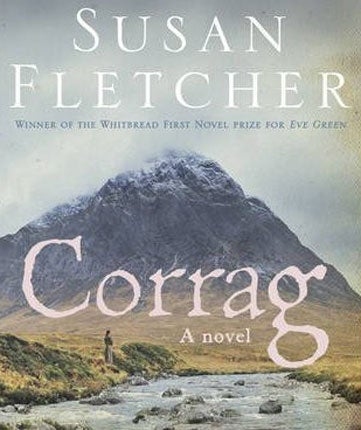Corrag, By Susan Fletcher

Your support helps us to tell the story
From reproductive rights to climate change to Big Tech, The Independent is on the ground when the story is developing. Whether it's investigating the financials of Elon Musk's pro-Trump PAC or producing our latest documentary, 'The A Word', which shines a light on the American women fighting for reproductive rights, we know how important it is to parse out the facts from the messaging.
At such a critical moment in US history, we need reporters on the ground. Your donation allows us to keep sending journalists to speak to both sides of the story.
The Independent is trusted by Americans across the entire political spectrum. And unlike many other quality news outlets, we choose not to lock Americans out of our reporting and analysis with paywalls. We believe quality journalism should be available to everyone, paid for by those who can afford it.
Your support makes all the difference.The 1692 Massacre of Glencoe can still rouse passions today, so it's a brave author who tries to wrest fiction from it. In her third novel, Susan Fletcher approaches the massacre using two main characters, one historical, the other semi-legendary. What emerges is very much a literary, rather than a traditional historical, novel.
Charles Leslie was an Irish Jacobite who wrote one of the key contemporary accounts of the events. In the novel, he is secretly gathering evidence that the new Williamite regime in England willed the atrocity. His search takes him to Inveraray, and to Corrag, a young woman condemned as a witch and apparently a witness.
Leslie is initially disgusted at the presence of the supposed witch and the squalor of her prison cell. Corrag makes a storyteller's bargain; she agrees to tell him what she knows if she can first share her own story. Over seven days, we listen alongside him.
Corrag's storytelling forms the heart of the novel, interspersed with Leslie's commentary in letters to his wife. Northumberland-born, Corrag fled north after her mother, a herbalist healer, was condemned as a witch. Eventually, Corrag reached Glencoe and was drawn into the life of the doomed MacDonald community.
Fletcher gives Corrag a poetic, intense narrative voice that reflects her joy in the natural world. A curious mutual friendship and respect develops between them and, as her tale reaches its climax, a surprising and rather unlikely denouement is set up.
Although beautifully written, Corrag's voice can become wearying. The novel might have benefited from some editorial pruning but, in fairness, Fletcher allows Corrag to be aware of her volubility: "I was always one for going on and on." The unconsummated passion between Corrag and the MacDonald chieftain's younger son also sits rather awkwardly. Still, Fletcher's novel takes a refreshing approach to its engagement with history. Many who are usually allergic to historical fiction will welcome it.
Join our commenting forum
Join thought-provoking conversations, follow other Independent readers and see their replies
Comments